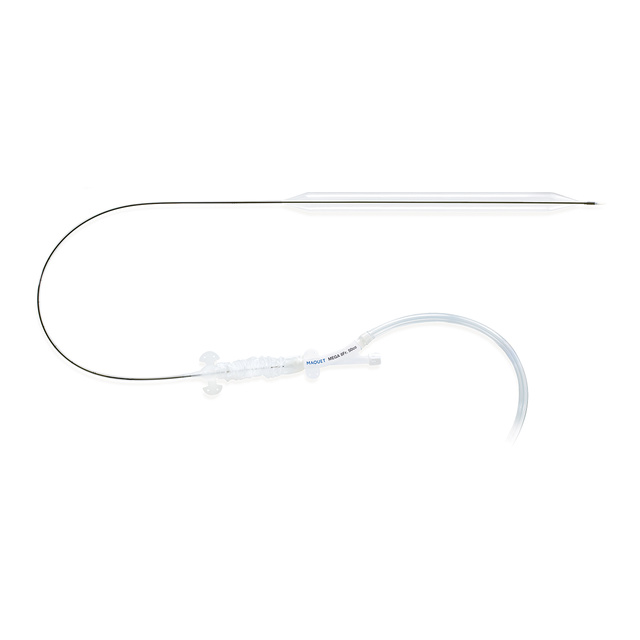Abstract
We report the enhanced augmentation of cardiac output in a 60-year-old man who underwent percutaneous coronary intervention with drug-eluting stent implantation for a large anteroseptal ST-segment-elevation myocardial infarction. Because of persistent systemic hypotension during the procedure, a 50 cc, 8 Fr. MEGA® intra-aortic balloon was inserted, used for 24 hours, and removed without complications. The use of this new balloon — with larger blood volume displacement but smaller caliber at the insertion site — significantly increased cardiac output in 1:1, 1:2, and 1:3 assist modes, by more than 15%, 9%, and 4%, respectively. These findings exceed the average augmentations reported for smaller-volume balloon catheters.
Abstract
A primary cause of adverse outcomes among high-risk patients undergoing percutaneous coronary intervention (PCI) may be a diminished capacity to tolerate the hemodynamic and ischemic insults that can occur during the procedure. A common means of mechanical support during PCI has been the intra-aortic balloon pump (IABP). We describe successful periprocedural mechanical support with a new, 50 cc IABP in a patient with both severe left ventricular dysfunction and extensive coronary arteriosclerosis, for whom PCI with stenting was indicated. The prophylactic use of this 50 cc IABP, which traditionally would be contraindicated because of the patient's height (162.6 cm), markedly increased the diastolic aortic pressure (by ~110 mmHg) over the baseline level, while promptly reducing left-sided heart pressures. This finding appears to exceed the average diastolic augmentation reported for smaller-volume balloons. Although the role of the IABP in high-risk PCI remains controversial, further research is warranted to clarify and compare this new 50 cc IABP to smaller-volume balloons, and ascertain whether the observed hemodynamic benefits can translate into improved clinical outcomes among patients requiring mechanical support during PCI.
Prodotti correlati
Approfondite le vostre conoscenze con i nostri corsi di formazione ed eLearning
Per ulteriori informazioni sui nostri eventi in loco o sui corsi di formazione da remoto, potete anche contattare il vostro rappresentante locale di vendita e assistenza.
